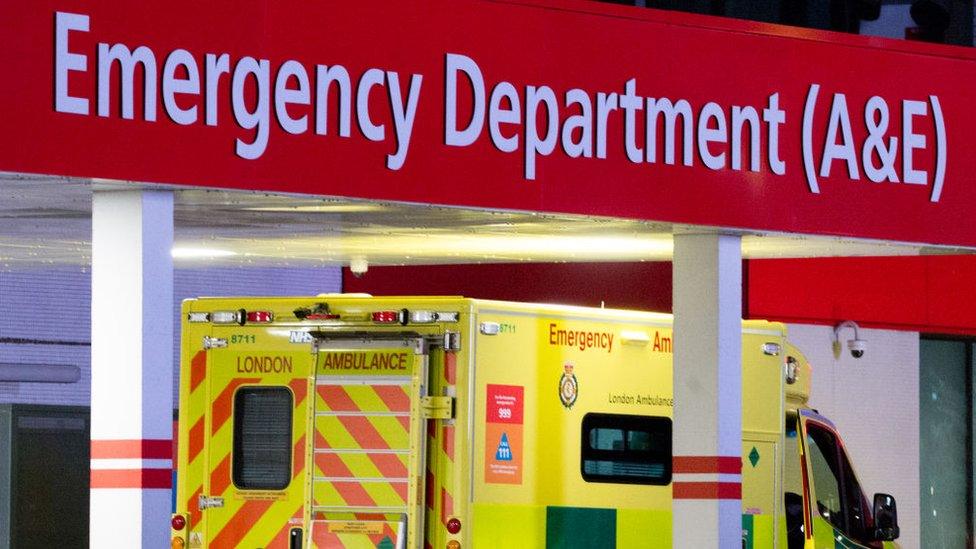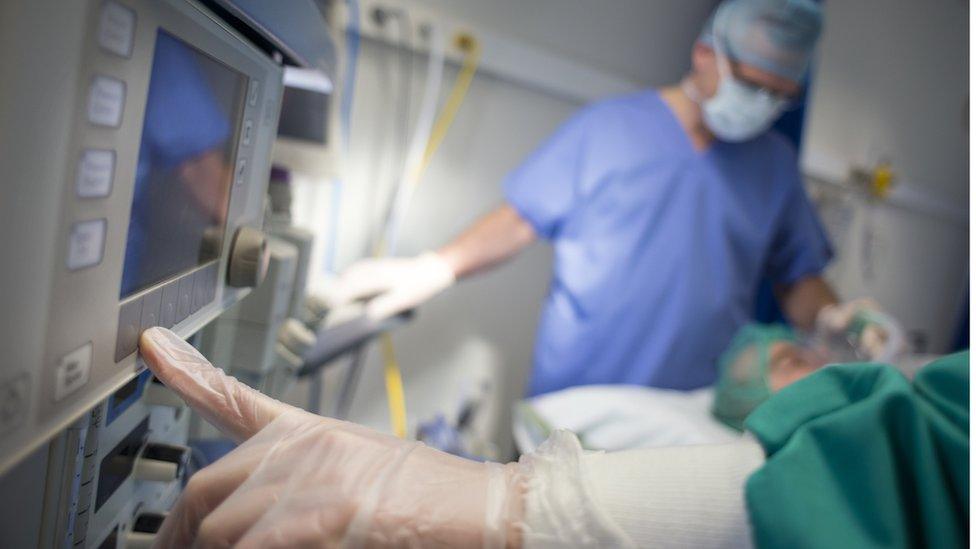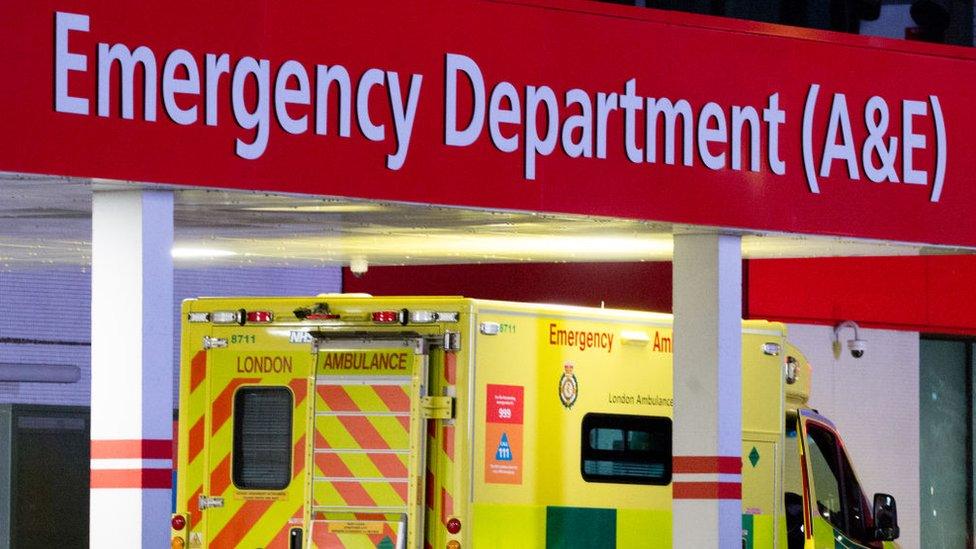NHS figures reveal long waits for routine ops in England
- Published
- comments

Attendances at A&E in England were 30% lower last month than in July 2019
The number of patients admitted for routine treatment in hospitals in England was down 67% in June compared with the same time last year, NHS figures show.
The number of people going to accident and emergency units in England in July was also down on last year, by 30%.
The coronavirus pandemic has caused disruption to many areas of the health service.
But patients are being urged to seek help from the NHS when they need it.
NHS England said local staff were working hard to restore non-Covid services and record numbers had received help during the pandemic through NHS 111.
'Alarming backlog'
Meanwhile, the number of people going to their GP with symptoms of cancer and being urgently referred to a specialist is rising but still nearly 20% lower than the same time last year.
A total of 153,134 urgent cancer referrals were made by GPs in England in June, compared with 194,047 in the same month last year.
NHS England said more than 92% of people were having their cancer symptoms investigated within two weeks and 85,000 people had started treatment for cancer since the pandemic began.
But Macmillan Cancer Support said the figures were "still worryingly low".
Head of policy Sara Bainbridge said: "These results from June suggest an alarming backlog of undiagnosed cancer and a growing number of people who are yet to start treatment.
"This could directly impact on many of these people's chances of survival."
Long waits
In June, more people than ever before - 1.85 million - were waiting longer than 18 weeks for planned hospital surgery, such as knee and hip operations.
NHS England figures also show the number of people waiting more than a year for hospital treatment rose from just over 1,000 in June last year to 50,500 for the same month this year.
And a total of 94,354 patients were admitted for routine treatment in June, down from 289,203 in June 2019.
The Health Foundation charity said the data showed the NHS was still "nowhere close to business as usual following the first outbreak of Covid-19".
It said there was a risk people experiencing long waits with serious conditions would see their health deteriorate, leaving the NHS to deal with more patients needing urgent care.
- Published15 July 2020

- Published1 June 2020

- Published14 May 2020
